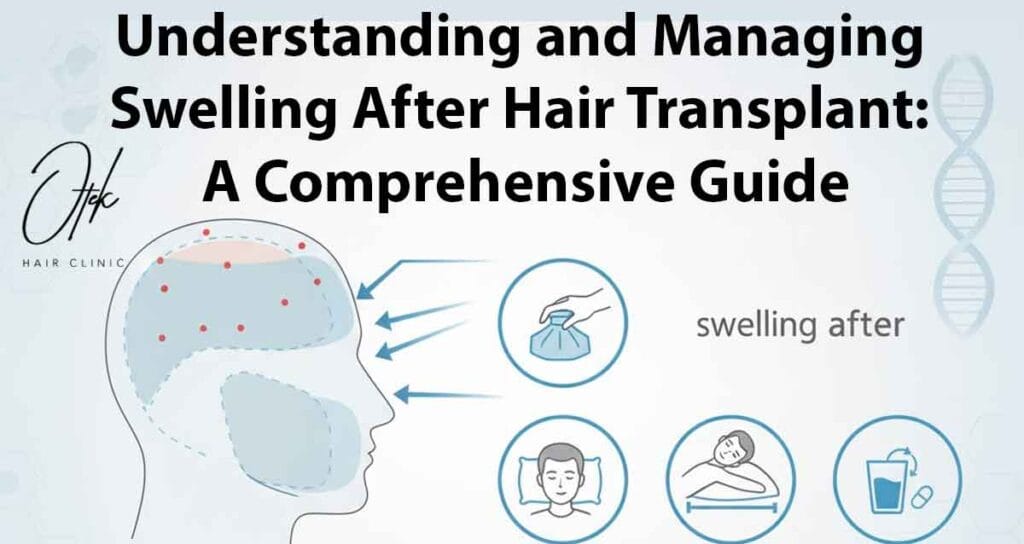Hair transplant procedures have become increasingly popular, especially in sought-after locations like Antalya, Turkey, where skilled professionals like Dr. Okan TANIN are making a significant impact. While the results of a hair transplant can be life-changing, it’s essential for patients to understand and prepare for potential side effects, such as swelling.
Why Swelling Occurs:
Swelling is a common occurrence after a hair transplant, and it happens for several reasons. The trauma caused to the scalp during the procedure can lead to inflammation, and the body responds by sending extra fluids to the affected area. Additionally, the tiny incisions made for the hair follicle implantation can cause mild trauma to blood vessels, resulting in fluid accumulation.
Handling Swelling:
While swelling may be alarming, it’s a natural part of the healing process. Patients can take proactive measures to minimize its impact. Following post-operative care instructions diligently is crucial. This may includes avoiding strenuous activities, refraining from touching or scratching the treated area, and applying any prescribed medications or ice packs as directed by the medical team.
Why Patients Shouldn't Worry:
It’s important for patients to understand that swelling is a temporary side effect and is generally part of the healing process. The body’s natural response to trauma involves increased blood flow and fluid accumulation, which aids in tissue repair. Patients should be reassured that this is a common and expected occurrence after a hair transplant.
Getting Rid of Swelling:
Patients can expedite the resolution of swelling by following their surgeon’s recommendations. Staying hydrated, getting adequate rest, and avoiding activities that may increase blood flow to the scalp are essential. In most cases, swelling subsides within a few days to a week. If persistent or severe, patients should contact their surgeon for further guidance.
Gender Differences:
While the basic principles of swelling after a hair transplant apply to both male and female patients, there may be some variations. Male patients tend to have thicker skin and a higher density of blood vessels in the scalp, which may contribute to more noticeable swelling. However, these differences do not affect the overall healing process or the final outcome of the transplant.
Choosing Antalya, Turkey, for a hair transplant, under the expertise of professionals like Dr. Okan TANIN, offers patients a unique blend of quality medical care and a picturesque destination. Swelling after a hair transplant is a natural and temporary occurrence that should not cause undue concern. By following post-operative care instructions and being patient, individuals can look forward to enjoying the lasting benefits of a fuller head of hair.
Call Us Today for FREE Consultations
ASK A QUESTION

